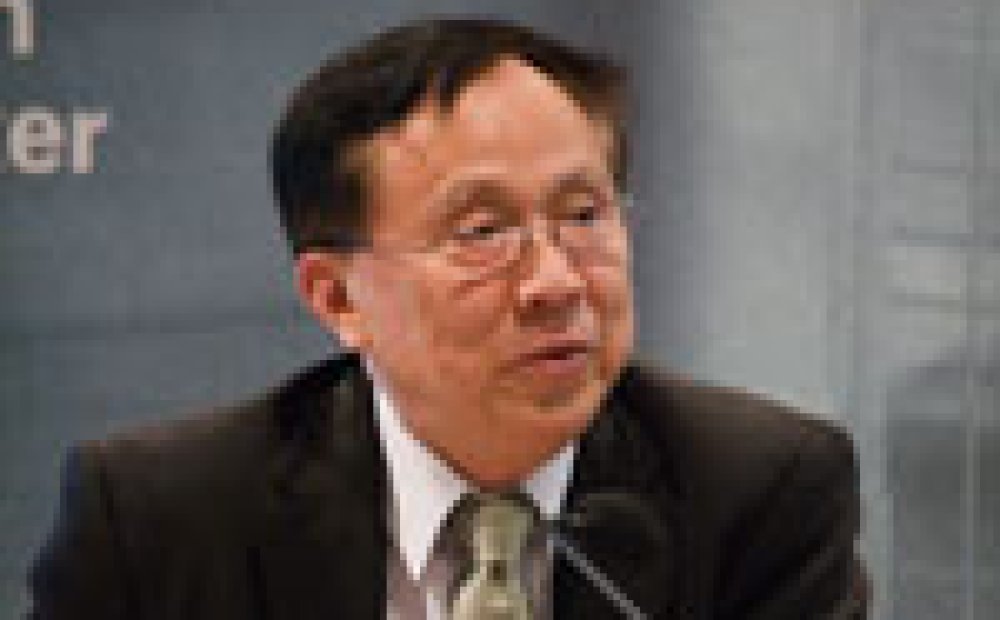Taiwan's Experience in Environmental Protection

Since its Environmental Protection Administration (EPA) was established in 1987, Taiwan has made significant progress in reducing pollution and creating policies to reduce wastes. This success is due in part to the dedication of the Chen Shui-bian administation's prioritization of environmental goals. In his talk at the Woodrow Wilson Center on August 16, 2007, Minister Winston Dang outlined the progress of the past few decades and emphasized how the transboundary characteristics of pollution require international coordination
Taiwan is environmentally disadvantaged in many ways. Its population density is two times greater than that of the United States, its motor vehicle density is seven times greater, and its swine density is 33 times greater. Its close proximity to mainland China has meant Taiwan suffers from dust storms and air pollution blowing across the Taiwan Strait. Despite these challenges, there are many promising trends in Taiwan; for example, the percentage of seriously polluted rivers dropped 9.6 percent between 2003 and 2005 due primarily to government mandated factory closings and relocation of swine production away from river banks. Although factory and motor vehicle density remains high, the number of poor air-quality days in Taiwan has been steadily decreasing. In 2006, the World Economic Forum ranked Taiwan 24th out of 133 countries in terms of environmental performance, while the United States came in only 28th.
Minister Dang devoted considerable time during his talk to discussing improvements in recycling and waste management, which are crucial issues due to the high population density on the island. Because of the expertise developed in this area, Minister Dang noted that Taiwan's EPA would like to share its experience with China's State Environmental Protection Administration (SEPA). However, to date, China has rebuffed all contact.
Although it is politically difficult for Taiwan to participate in international environmental meetings, Taiwan is involved in environmental initiatives with Mongolia, the United States, Canada, Japan, and the European Union. These initiatives total over 130. Recently, Taiwan's EPA hosted environmental protection meetings with environmental ministers from several Pacific Island nations, which like Taiwan face grave threats from rising oceans due to global warming.
Taiwan is interested in expanding its international outreach and has proposed a World Environmental Organization (WEO) to bring countries together to discuss the transboundary effects of and solutions for pollution. Taiwan is also eager to work with other nations on global mercury problems. Asian countries notably contributed about 54 percent to the global mercury emissions from anthropogenic sources in 2000, with China estimated to be contributing about 28 percent to the global emissions of mercury. Taiwan has been working with the U.S. EPA on transboundary mercury issues, which helped improved its Lulin Monitoring Station. That station is playing an important role as part of a larger global mercury monitoring network.
Notably, said Dang, Taiwan follows guidelines of the Basel Convention, the Montreal Protocol on Ozone Depleting Substances, and the Kyoto Protocol, even though it is not an official signatory of any of these international environmental agreements. In terms of climate change, on March 7, 2007, the Health, Environment and Social Welfare Committee of Taiwan's legislature approved 22 articles of the draft Greenhouse Gas Reduction Act, while holding back on 10 articles. Negotiations are also ongoing regarding issues of total quantity control targets and emissions allocation methods to create emissions trading regulations.
Click here to access Minister Dang's Powerpoint presentation
Drafted by Linden Ellis/Jennifer Turner: China Environment Forum
Robert M. Hathaway, Director, Asia Program. Ph: (202) 691-4020
Hosted By

Indo-Pacific Program
The Indo-Pacific Program promotes policy debate and intellectual discussions on US interests in the Asia-Pacific as well as political, economic, security, and social issues relating to the world’s most populous and economically dynamic region. Read more


China Environment Forum
China’s global footprint isn’t just an economic one, it’s an environmental one. From BRI investments in Africa and Asia to its growing presence in Latin America, understanding China’s motivations, who stands to gain - and who stands to lose - is critical to informing smart US foreign policy. Read more
